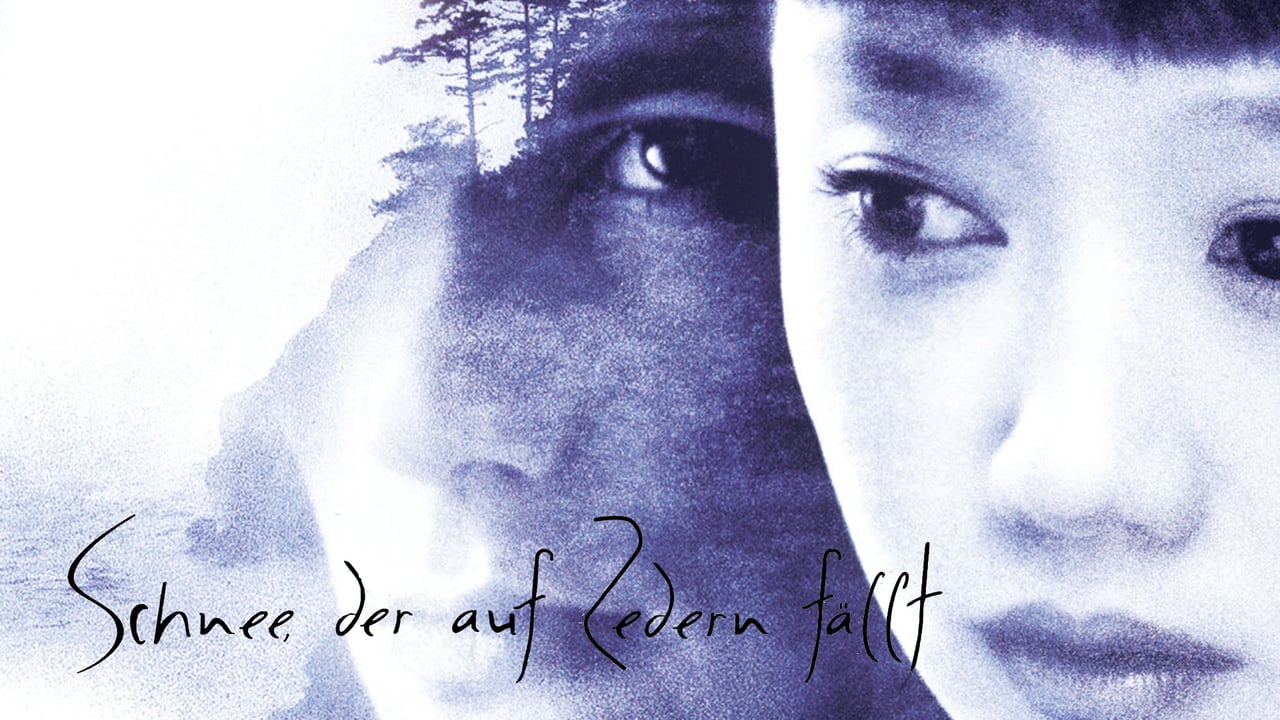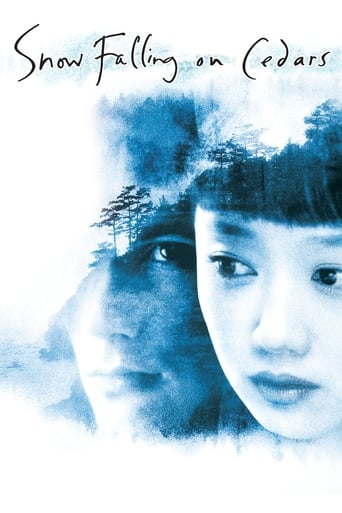

Who payed the critics
... View MoreThis is one of the few movies I've ever seen where the whole audience broke into spontaneous, loud applause a third of the way in.
... View MoreIt's a good bad... and worth a popcorn matinée. While it's easy to lament what could have been...
... View MoreThrough painfully honest and emotional moments, the movie becomes irresistibly relatable
... View MoreAesthetically fusing the roaming sensuality of Terrence Malick with David Fincher's sleekly composed perfectionism, director Scott Hicks conjures something truly elegant in his sure-handed film adaption of novelist David Guterson's achingly humane meditation of memories and mysteries. Using a local Japanese-American's trial for murder as springboard to mosaically reckon with pains and pleasures ever echoing out from the intricately woven tapestry of the past, "Snow Falling On Cedars" is gracefully rendered from its illustrious source novel's deeply textured framing. The story intimately sets its focus upon a post Second World War American Pacific Northwest coastal community grappling with lingering racial anxieties and prejudices, whilst oneirically delving between the insidious angst of love turned longing, and the ethical responsibility of each to reach for integrity and forbid fear from effecting fairness. Finely crafted to the highest level by tip-top talents all giving their career bests, beautifully executing a singular vision of fluid design. Uniformly nuanced acting performances are flawlessly enhanced to the zenith of the Cinematic art form by the stunningly divine union of Jeannine Oppewall's sublime production design to Robert Richardson's evocative cinematography, and editor Hank Corwin's mercurial non- linear assembled paramnesia accompanied by composer James Newton Howard's haunting musical resonance. Every tactile frame is a gently measured reflection of the era and souls that once stirred there, authenticity attending to the minutia of their elements. In dreamy adagios and empathetic elegies, the aural aura of its sensuous score is ruthful reverberation of the film's delicate dignity.I cannot summon enough adjectives to adorn such wistful brilliance its just due. To my mind, "Snow Falling On Cedars" is a lamentably under-revered melancholy masterpiece.
... View MoreI'm usually in general agreement with IMDb viewers on most films, but with this one I have a major disconnect. The picture has a 6.8 rating as I write this, a far cry from the 10 I would give it for masterful story telling and exceptional cinematography. You just never can tell.I realize that the non-linear format can be a turn off for many viewers, but unlike other movies I've seen utilizing the frequent use of flashbacks, I didn't find the technique to be distracting here. It was fully essential to develop the back story of Ishmael's (Ethan Hawke) unrequited love for Hatsue (Yuki Kudo), and the circumstances leading to the trial of Hatsue's husband for murder. Particularly relevant were the scenes pertinent to the Miyamoto family acquiring the berry farm and how they were basically swindled by Etta Heine (Celia Weston) and the legal system following the death of Mrs. Heine's husband. The roundup of Japanese families and their internment in prison camps following the outbreak of World War II was particularly painful to watch recreated on screen, alluding to an unfortunate era in the history of the country.However the most agonizing theme that pervades the story is Ishmael's inability to come to terms with the loss of Hatsue. It invades every aspect of his thoughts and his very existence. Eventually this personal torment is eclipsed by the necessity to do the right thing for a fellow human being.With a finale reminiscent of the closing scene in "To Kill a Mockingbird", the Miyamoto family stands in unison to proclaim their admiration for Ishmael after he does the right thing by bringing new evidence to the judge presiding over the trial. Just prior to that, Defense Attorney Gudmundsson (Max von Sydow) delivered a stunning summation to jolt Ishmael into recognition of what he must do for the sake of justice and equality. Later, in a quiet moment with Ishmael, the wizened attorney makes a poignant observation that's brilliantly insightful into the human condition - "Accident rules every corner of the universe, except maybe... the chambers of the human heart."
... View MoreThis film is a travesty against it's source material - being one of the finer works of fiction from the 90s - and should be avoided by any and all who have read the novel. The wonderful cinematography aside, the film fails to deliver in nearly every aspect. Wooden acting; a script as stilted and predictable as a Louis L'Amour novel; and a lack of subtlety so apparent, it might as well be a PSA against racism all weigh heavily against this waste of film stock. Furthermore, and in collusion with the above statements, far too many liberties were taken with the novel to fairly call this a translation of the original. It merely preserves the strongest theme of novel - racism - and runs over the rest. Finally, the sex scenes present in the book are washed over so as to satisfy a PG13 rating, but these were absolutely pivotal to the understanding the characters and their motivations.
... View MoreThis is probably the worst movie I have ever seen in my life, and the first video rental that made me and a buddy push the fast-forward button more than three times. When you have two religious viewers show the most emotion when a character swears at his former love while losing a limb, you know the movie is really bad. Snow falling on cedars has way too many shots of snow actually falling on cedars. And snow falling on the ground. And people talking like they are watching snow falling. Soooo boring. Believe me, it is much better to simply sit in front of your apartment window and watch the snow actually fall then to waste money renting this movie.
... View More